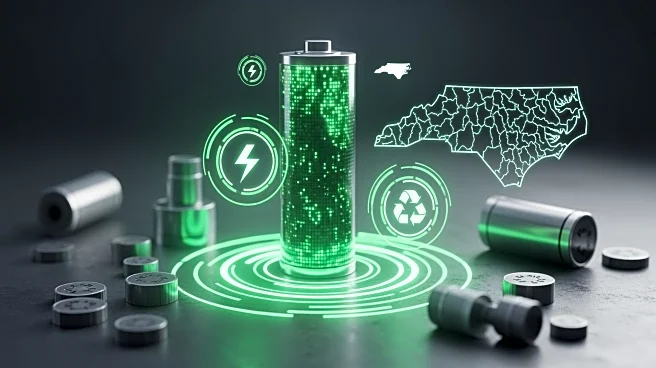What's Happening?
Toyota Motor Corporation has commenced production at its new battery plant in Liberty, North Carolina, marking its first such facility outside Japan. The plant is part of a broader $14 billion investment
aimed at enhancing Toyota's U.S. manufacturing capabilities. The facility will produce lithium-ion batteries for hybrid, plug-in hybrid, and battery-electric vehicles, supporting models like the Camry HEV and RAV4 HEV. The project is expected to create up to 5,100 jobs and is seen as a significant boost to the local economy. Toyota plans to invest an additional $10 billion in U.S. manufacturing over the next five years, further solidifying its commitment to the American market.
Why It's Important?
Toyota's investment in the North Carolina battery plant represents a significant step in the company's strategy to expand its electrification efforts in the U.S. This move aligns with broader industry trends towards electric vehicles and supports the U.S. administration's goals of reshoring critical industries. The plant's establishment is expected to have a substantial economic impact, creating thousands of jobs and stimulating local economies. It also underscores the growing importance of sustainable energy solutions in the automotive sector, as manufacturers increasingly focus on reducing carbon emissions and meeting consumer demand for eco-friendly vehicles.
What's Next?
As Toyota continues to expand its U.S. operations, the company is likely to focus on increasing production capacity and developing new electric vehicle models. The success of the North Carolina plant could encourage further investments in similar facilities, both by Toyota and other automakers. Additionally, the plant's development may prompt increased collaboration with local educational institutions to support workforce development and STEM education, ensuring a skilled labor pool for future manufacturing needs.











